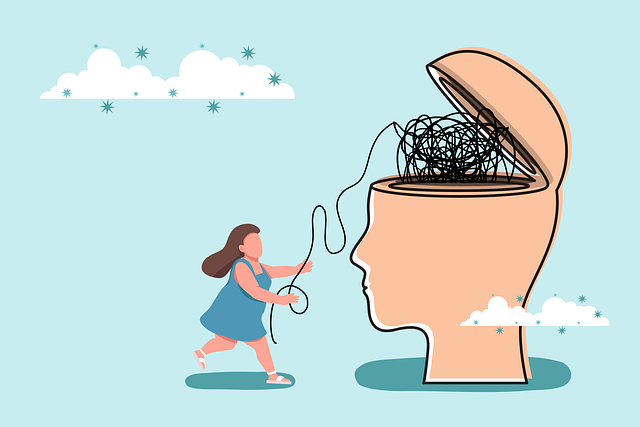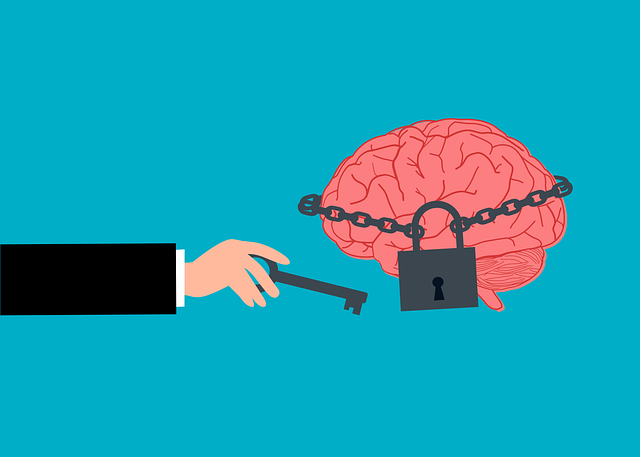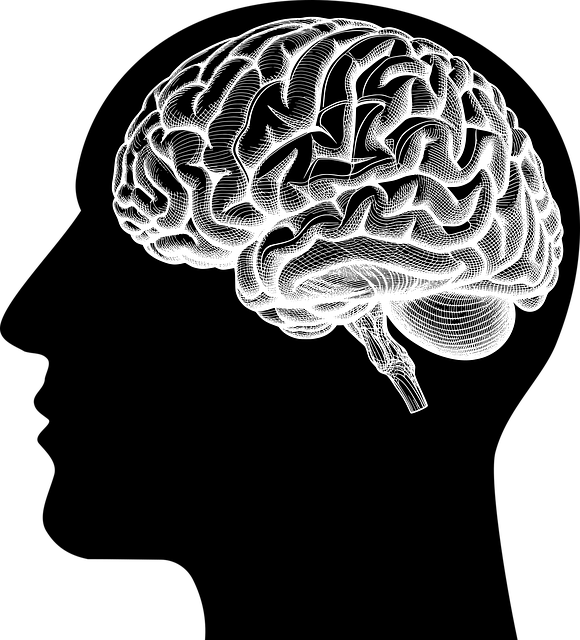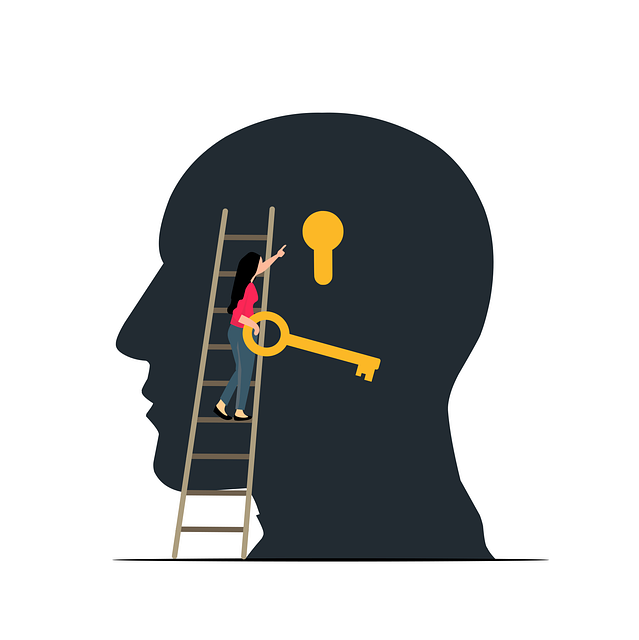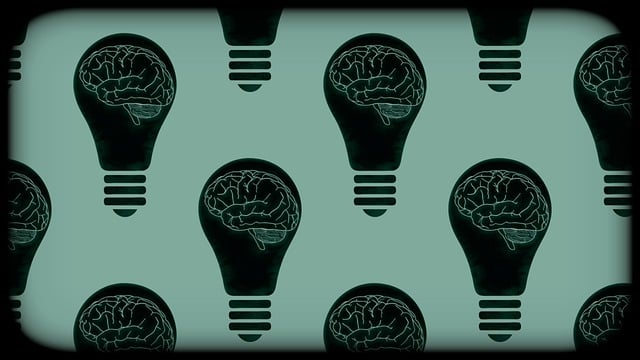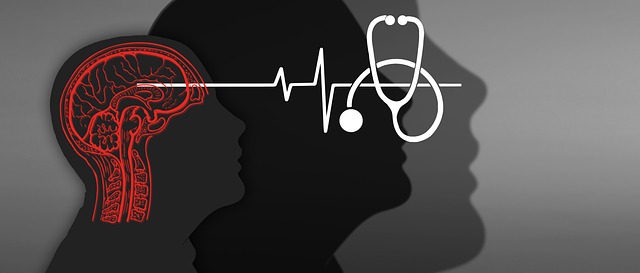Arvada Children Therapy focuses on early emotional intelligence development through interactive activities, CBT, mindfulness meditation, art, music, and movement. They teach children coping mechanisms, self-awareness, and stress management to enhance resilience and mental wellness, catering to diverse cultural needs. Their evidence-based approach uses community outreach and workshops to create a supportive environment for emotional growth, benefiting kids from early ages through adolescence and adulthood.
Mood regulation is a vital skill for children to navigate their emotional well-being. This comprehensive guide explores various strategies to empower young minds, offering a holistic approach to emotional intelligence. From cognitive behavioral therapy (CBT) sessions in Arvada Children’s Therapy to mindfulness practices and creative outlets, each section delves into effective techniques. Discover how art, music, movement, and building resilience can enhance mood regulation, providing tools for children to understand and manage their emotions effectively.
- Understanding Mood Regulation: Unraveling Emotional Intelligence in Children
- The Role of Cognitive Behavioral Therapy (CBT) in Arvada Children's Therapy
- Mindfulness and Meditation: Calming Techniques for Young Minds
- Creative Outlets: Art, Music, and Movement as Mood Boosters
- Building Resilient Coping Skills: Empowering Kids to Navigate Emotions
Understanding Mood Regulation: Unraveling Emotional Intelligence in Children

Understanding Mood Regulation begins with recognizing and developing emotional intelligence in children. Arvada Children Therapy focuses on teaching young minds to recognize and manage their emotions effectively, a cornerstone of mental wellness. Through interactive activities and exercises tailored for kids, therapists help them identify feelings, explore triggers, and develop coping mechanisms. This early intervention equips children with the tools to navigate their emotional landscape, fostering resilience and self-awareness that can last a lifetime.
Journaling exercises and mental wellness coaching programs developed by professionals play a crucial role in this process. By engaging in regular journaling, children gain insight into recurring emotions and patterns, allowing them to reflect on their experiences and understand the connection between thoughts, feelings, and behaviors. Similarly, mental wellness coaching programs offer guidance and support, teaching skills for stress management, burnout prevention—even strategies applicable to healthcare providers struggling with similar challenges. These tools empower children, setting them on a path toward better emotional regulation and overall mental health.
The Role of Cognitive Behavioral Therapy (CBT) in Arvada Children's Therapy

Cognitive Behavioral Therapy (CBT) plays a pivotal role in Arvada Children’s Therapy, offering a structured and evidence-based approach to addressing various emotional and behavioral challenges in young minds. This therapeutic technique focuses on identifying and modifying negative thought patterns and behaviors, empowering children to develop healthier coping mechanisms. Through CBT, therapists assist children in understanding the connection between thoughts, feelings, and actions, helping them gain control over their emotional responses.
The effectiveness of CBT lies in its ability to equip both children and their healthcare providers with essential tools. Arvada Children’s Therapy integrates Mental Health Education Programs Design to foster self-awareness and resilience in young patients. Additionally, they provide Healthcare Provider Cultural Competency Training, ensuring therapists are adept at addressing diverse cultural needs. Effective communication strategies, a cornerstone of CBT, form the basis of building trust and encouraging open dialogue between therapists and children, facilitating a safe space for emotional exploration and growth.
Mindfulness and Meditation: Calming Techniques for Young Minds

In today’s fast-paced world, young minds often face challenges managing their emotions and maintaining a stable mood. This is where mindfulness and meditation come into play as powerful tools for regulating moods. Arvada Children Therapy emphasizes the importance of teaching children these calming techniques to help them navigate their feelings effectively.
Mindfulness Meditation involves focusing one’s attention on the present moment without judgment, allowing children to observe their thoughts and emotions without getting overwhelmed by them. Regular practice can enhance self-awareness and emotional intelligence, enabling kids to better understand and manage their mental states. The Community Outreach Program Implementation at Arvada Children Therapy incorporates mindfulness activities into group sessions, fostering a supportive environment where young individuals learn to breathe, relax, and respond to stressful situations calmly, thereby reducing anxiety and promoting overall well-being. This approach not only benefits children but also equips them with valuable skills that can be applied throughout their lives, especially when navigating the complexities of adolescence and adulthood. Additionally, for mental health professionals, a thorough Risk Assessment is crucial to ensure safe and effective delivery of these interventions.
Creative Outlets: Art, Music, and Movement as Mood Boosters

Engaging in creative outlets like art, music, and movement can significantly boost one’s mood, offering a powerful yet often overlooked therapy for both children and adults. These activities provide an outlet for self-expression, allowing individuals to tap into their emotions and process them in a healthy way. For instance, painting or drawing can help channel intense feelings into visual forms, while music offers a medium to convey joy, sorrow, or any other emotion through melodies and lyrics. Movement, be it dance or simple exercises, releases endorphins that enhance well-being and reduce stress levels.
Arvada Children Therapy recognizes the therapeutic benefits of these creative practices in Burnout Prevention Strategies for Healthcare Providers. They are effective self-awareness exercises that can complement traditional Stress Reduction Methods. By incorporating art, music, and movement into their routines, individuals can improve their emotional intelligence, better manage stress responses, and cultivate a more positive outlook on life. These activities foster self-discovery, provide an escape from the pressures of daily life, and ultimately contribute to improved mental health and resilience.
Building Resilient Coping Skills: Empowering Kids to Navigate Emotions

Building resilient coping skills is an essential part of empowering children to navigate their emotions effectively. Arvada Children Therapy recognizes that teaching kids emotional intelligence from a young age can significantly impact their overall well-being and mental health. Through various therapeutic techniques, children learn to identify and understand their feelings, which is the first step towards managing them constructively. By participating in activities and workshops focused on coping skills development, kids gain valuable tools to handle stress, anger, or sadness in healthy ways.
The process involves encouraging open communication about emotions, teaching mindfulness practices, and helping children develop adaptive strategies for dealing with challenging situations. This empowers them to become more resilient and better equipped to navigate the complexities of their emotional landscape. Additionally, stress management workshops organized by such therapy centers provide a safe space for kids to learn from peers, fostering a sense of community and shared understanding while promoting emotional intelligence on a deeper level.
In conclusion, mood regulation is a vital skill for children to develop, fostering emotional intelligence and resilience. From cognitive behavioral therapy to creative outlets, various strategies can help young minds manage and enhance their moods. Arvada Children’s Therapy offers specialized approaches like CBT, empowering kids to navigate emotions effectively. By integrating mindfulness, art, music, and movement, children can find healthy ways to express and regulate their feelings, ultimately building coping skills that will serve them well throughout their lives.
